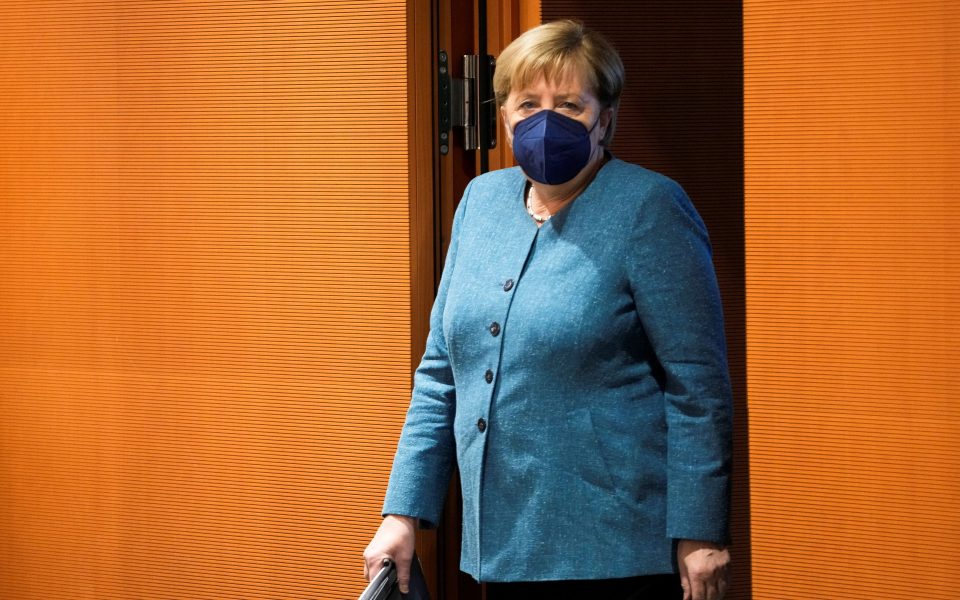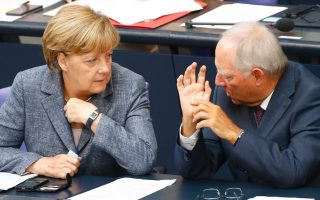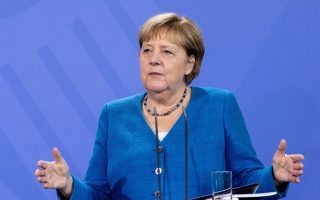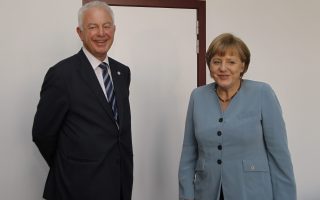Angela Merkel and Greece – years of discovery

When Angela Merkel steps down as federal chancellor – some time after September 26 – an era will come to an end which has significantly affected Germany, Greece and the European Union. Her tenure at the helm of the German government was marked by what is felt as a cascade of unprecedented challenges with the federal chancellor growing into the role of a political leader and crisis manager trying to forge consensus among 28 (now 27) member-states. It is obvious that while her actions led to admiration by some, they also triggered significant controversy. We Germans might resent this: but it is a fact that our partners in the EU expect Germany to provide some leadership. This was also the case for the problems affecting Greece, which during the last decade confronted the sovereign debt crisis, an influx of migrants in the wake of conflict in the Middle East and an inefficient EU migration policy, as well as the ever occurring flare-ups in the relationship with Turkey.
Angela Merkel saw the the financial crisis with the ensuing sovereign debt crisis as an existential threat to the eurozone and to the EU at large. It had the potential to weaken Europe’s place in global affairs, in an increasingly competitive strategic environment. Upholding the credibility of the monetary bloc meant for her discipline by its members as well as a readiness for bold intervention. She had to navigate between these two poles. Germany, unlike Greece, has a tradition of coalition governments which require lengthy and often cumbersome negotiations to formulate government positions. But in the case of Greece, the split went right across the party lines of the Christian Democratic Union (CDU), her own party, and her coalition partner, the liberal Free Democratic Party (FDP), until 2013. She had to accommodate strong voices arguing that austerity, at whatever price for the people, had to be the panacea and if that was not feasible then Greece would have to leave the eurozone. Let us not forget that there were other members of the eurozone who held even more radical views and who were “hiding” and leaving Germany to do “the dirty job.” On the other hand, Merkel, like many others in the coalition (and among the German public), had to assess the strategic consequences of a “Grexit.” In my personal view she was convinced throughout that Greece had to stay a member of the eurozone. The controversy took a dramatic turn, with media in both countries engaging in ugly and irresponsible campaigns, damaging the trust and friendship which had grown over years between two countries with a very complex history. There was a resemblance in the kind of “self-victimization” that prevailed in the public opinion in both countries: On one side Greece, a victim of speculation where the people had to pay the price for saving German, French and other banks, on the other side an “industrious” Germany, who had to pay for irresponsible and reckless public spending in Greece. I recall that it was at times difficult to have a rational discussion both in Greece and in Germany. And still today, some of my Greek friends maintain that it was a deliberate strategy by Angela Merkel to let the government of Antonis Samaras “run into a wall,” the argument being either that there was an easier deal with the presumably inexperienced SYRIZA government or that it might be easier to kick Greece out of the eurozone.
Such speculation greatly ignores both the character of Angela Merkel, as well as the functioning of Germany, the EU, and I believe Greece. First of all, there is no way in which one EU partner can gamble on the election outcome of another. Secondly, it is in my view very likely that Angela Merkel, having grown up in a Soviet-dominated dictatorship, has a solid instinct to resist any interference in the democratic elections of other countries. To some, her pragmatic reaction and businesslike relationship with the government of Alexis Tsipras was surprising, sometimes even provoking anger in the other part of the political spectrum. But for her, it was very simple: This was the government the Greek people had elected into office – so this was her new partner. And she wanted to find a solution.
Angela Merkel is a scientist by training. And she is somebody who likes to assess risks properly before taking a position. I recall how some of my Greek counterparts were surprised by her sense of rational pragmatism and how easily accessible she was on that first meeting with the newly elected prime minister on March 23, 2015. They were also a bit overwhelmed by her acribic preparation, also in detail, which they might not have expected. The challenge for Merkel was twofold: to convince her new partners in SYRIZA that procedures had to be complied with and that the Eurogroup and the much resented “troika” were the mandated platforms and instruments to work out technical details – not the European Council; and, secondly, to establish a personal relationship with the new prime minister, who could not have been more different. The latter was crucial given the rollercoaster that led to the referendum of July 5, 2015. Merkel is likely to have been as surprised as most observers at the referendum and the way it had been conducted. But her intrinsic impulse control prevented her from an overly emotional reaction (as was the case for many others). The ensuing escalation during which many (including the German finance minister) seemed ready to suspend Greece’s membership of the eurozone was indeed a dangerous moment for Europe. The chancellor, together with French President Francois Hollande and Commission President Jean-Claude Juncker, understood the political risk and shared the urge to contain it as quickly as possible. Here, there was more at stake than the primary surplus algorithms of the International Monetary Fund and the fiscal integrity of a member-state budget. This was about the danger of weakening Europe in far more strategic way. Let’s not forget the jubilant reactions by people like Nigel Farage and Marine Le Pen on the outcome of the referendum. In my personal view Angela Merkel was always determined to contribute her part to avert this danger. It was a Herculean task to achieve this while preventing a loss of face for both parties at the table. Of course the deal reached during that crucial night in July 2015 triggered criticism, and occasional fury. But it had cleared the air and opened the way for a new quality of partnership. Of course we may in hindsight argue about Germany’s insistence on fiscal discipline or the IMF’s obsession with primary surplus scenarios. Or about domestic policy dominating Germany’s action during this time. But in the end, it was not least Angela Merkel’s pivotal role that enabled Greece and its European partners to move forward.
During the dramatic refugee crisis in 2015 Angela Merkel surprised many with her sense of humanity. Her courageous decision to admit refugees trapped in Hungary has become an iconic gesture of generosity and humanitarian spirit. But this has caused her tremendous domestic problems at home. She also displayed considerable leadership in spelling out the obvious truth: that the Dublin system with its enormous pressure on member-states with EU external borders was unfair and outdated. The agreement negotiated with Turkey was supposed to reduce the pressure on Greece. Although it may have had its flaws – in particular the congestion in the Greek islands bordering Turkey – it has helped somehow to reduce influxes. Angela Merkel took the responsibility to exercise leadership in the absence of a more fundamental policy of just and efficient burden-sharing, which continues to be – until today – rejected by a number of member-states, in some cases under populist and sometimes openly xenophobic influence.
Much has been debated about Germany’s reaction to the ongoing provocations by Turkey in the eastern Aegean – not least during the German EU presidency in 2020. Many in Greece would have wished for a more vocal and robust condemnation of the flagrant violations of international law. They questioned the possibility for Germany to play the role of mediator where our common external borders are threatened. From Greece’s view, the disappointment may be understandable. I have however been struck by some of the simplistic explanations offered during the debate. From Merkel’s perspective, and from her pragmatic policy approach, there was no alternative to keeping difficult, at times hostile, players engaged. You can imagine her profound frustration and anger over Vladimir Putin’s Russia after the illegal annexation of Crimea or the de facto occupation of the Donbas region in Ukraine. Still, and against advice calling for more spectacular action, she has always upheld channels of communication given Russia’s role and influence in the Middle East, on the Iran nuclear deal and other important global issues. With Recep Tayyip Erdogan’s Turkey there may indeed have been more space for Germany to align itself with the robust reactions shown by other partners both inside the EU and outside. But Germany’s stance had nothing to do with any commercial deals and interests as insinuated by some commentary here. Nor can it be interpreted as proof of some historical continuity of “German-Ottoman” relations. Just have a look at the significant bilateral tensions between Germany and Turkey during the past years. It was rather another style in policy with a shared objective: to diffuse tension with Turkey, a NATO partner, in view of its role in various international conflicts: Syria, Libya, the Caucasus and others.
In summary, I am convinced that the years with Angela Merkel as German chancellor have brought our countries closer, not least through controversy – sometimes conflict – over important issues. We have come to discover ourselves in a new – and more mature – way, leaving the comfort zone of old and established prejudice. We have seen how important we are for each other and we have realized that we are indispensable partners in our common quest to maintain our continent as a place of freedom, security and prosperity in an ever more competitive global environment. This path of learning will continue, and the chapter of the years with Germany under Merkel’s leadership was an indispensable and – yes – positive one.
Peter Schoof was Germany’s ambassador to Greece from 2014 to 2017.





